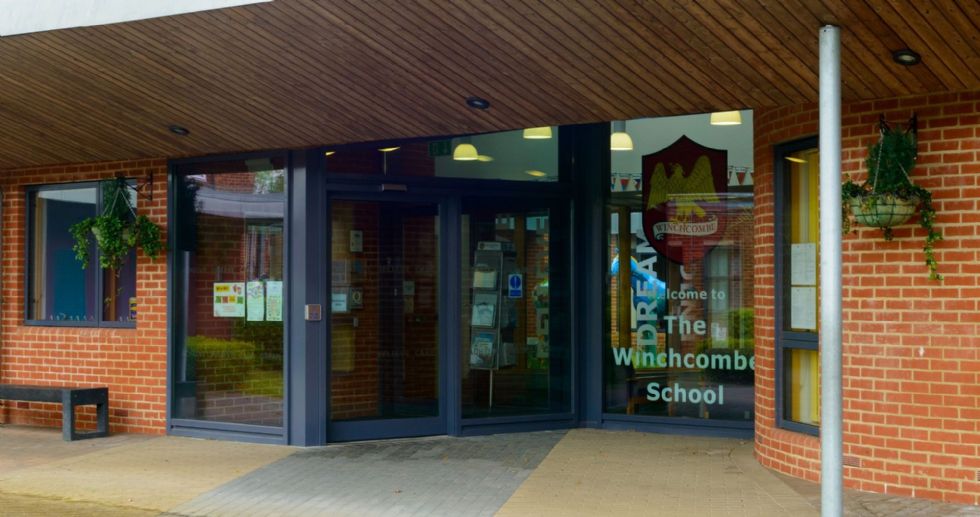Maths

What is our Philosophy?
At The Winchcombe School we aim to build deep understanding, confidence and competence in maths, creating a culture that produces strong learning and real progress for all. We want our children to be assured, happy and resilient mathematicians who relish the challenge of maths and see its relevance to life. We believe that all children should become independent, reflective thinkers, whose knowledge supports them across the curriculum, sparks curiosity and excitement and helps nurture a long-term, secure and adaptable understanding of the subject. We want children to make connections between mathematical ideas to develop fluency, mathematical reasoning and competence in solving increasingly sophisticated problems.
What is taught?
Our mastery curriculum is mapped out across the school to provide a cohesive progression of mathematical knowledge for the key elements of number, geometry, measurement and statistics. Within each strand, opportunities are provided for challenge, reasoning and problem solving. Children are taught to use key mathematical vocabulary to discuss their thinking and deepen their understanding. They are encouraged to read and use a range of representations through the CPA approach to support their understanding and demonstrate the mathematical structures being taught. Fluency sessions are also incorporated to improve the quick and efficient recall of key mathematical facts.
White Rose Scheme of learning:
At The Winchcombe School we use the White Rose Schemes of Work as a guide to support teachers with their planning and assessment. Mathematical topics are taught in blocks, to enable the achievement of mastery over time. Carefully designed variation within this builds fluency and understanding of underlying mathematical concepts. Clear modelling, shared thinking, guided and independent practice and review play central roles both within a lesson and across a block.
Fluency:
Children’s prior knowledge is reviewed and built upon. This helps them to make key links and encourages them to use previous learning to help them with new ideas. Opportunities are given to retrieve previous learning through the use of Flashbacks and Check-it tasks spaced after new knowledge is learnt. This is further supported by children being given time to work on their factual fluency through songs, counting and chanting. The Foundation Stage and Key Stage 1 follow the Mastery Number Programme.
Mathematical thinking:
Teachers are constantly modelling mathematical language in lessons to help the children use the correct vocabulary. This is supported through the use of stem sentences and helps the children to explain and justify their answers. In lessons, you will see teachers deepening children’s mathematical thinking through carefully planned questioning and activities.
Coherence:
Each block of learning is broken down into small connected steps that gradually unfold the concept, providing access for all children and leading to a generalisation of the concept and the ability to apply the concept to a range of contexts. Where children are struggling with a small step they are picked up quickly by teachers and misconceptions are addressed. Some of our children who may be working out of year group, are using the same representations and methods. This makes it easier for children to make clear links between year groups.
Assessment:
We use on-going assessment to monitor children’s progress and measure attainment. This also helps staff to plan for the future and address any misconceptions the children may have. We use White Rose end of unit assessments a few weeks after a unit is completed. This helps teachers understand what the children have retained from that specific unit and areas that may need to be reviewed.
At the end of each term, children complete the White Rose end of term assessment. These questions are a mixture of all the different units they have learnt that term. These are completed three times a year and help our teachers with their summative assessments.
Times Table Rock Stars and Numbots:
Year one children complete homework through Numbots. This is a programme used to make sure children have a robust basic foundation in maths. This programme focusses on subitising, addition and subtraction.
From Year Two onwards, children are set times tables that are a sequenced programme of daily practice using Times Table Rock Stars. Every week they are set new times tables to individual children’s abilities. This programme helps children to work on their times table knowledge (in and out of order) as well as their retrieval skills.
How is progress measured?
Progress in place value, number facts, addition and subtraction, multiplication and division, fractions, measures and geometry is assessed each year against the following aspects:
- Fluency
- Mathematical Reasoning
- Problem Solving
What does success look like at The Winchcombe School?
By the end of Year 6 children will:
- Understand, through varied practise, increasingly complex problems and gain the ability to recall and apply knowledge quickly and accurately.
- Follow a line of enquiry, explain and justify relationships and reason why, using a variety of mathematical language to help them justify and prove their thinking.
- Break down problems into similar steps, persevere in seeking solutions and exploring more than one possible solution.






